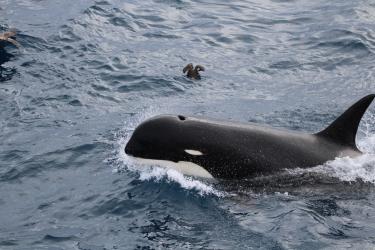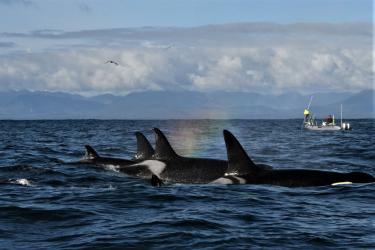
Summer is in full swing and saltwater recreational anglers across the country are out on the water chasing the bite, spending time with family and friends, and ultimately contributing substantially to coastal economies. Back in 2015, NOAA Fisheries solidified its commitment to saltwater recreational fisheries through the National Saltwater Recreational Fisheries Policy and subsequent National and Regional Implementation Plans. Since then the agency’s National Saltwater Recreational Fisheries Initiative has continued to advance our commitment of establishing and maintaining a strong partnership with the recreational fishing community through action.
This week Russell Dunn, the National Policy Advisor for Recreational Fisheries, is meeting with saltwater recreational constituents and partners at the International Convention of Allied Sportfishing Trades (ICAST) in Orlando, Florida. ICAST is the world’s largest sportfishing tradeshow with more than 15,000 attendees in 2016.
On Tuesday, Dunn announced plans for a 2018 National Saltwater Recreational Fisheries Summit slated for the Washington, D.C. area on March 28-29, 2018. This will be the third national meeting of this type and represents a continuing effort to engage recreational fisheries constituents from around the nation. Previous summits in 2010 and 2014 identified and described commonly held concerns, goals, objectives, and priorities, which served as the basis for the NOAA Fisheries National Action Agenda, subsequent Saltwater Recreational Fisheries Policy, and National and Regional Implementation Plans.
Dunn also released the Mid-Atlantic and Gulf Saltwater Recreational Fisheries Snapshots. These are the first in a series of informational factsheets that highlight the opportunities and economic impacts of recreational fisheries in each of eight fishery management council regions plus an additional factsheet covering Atlantic highly migratory species.
Next week, NOAA Fisheries Deputy Assistant Administrator Sam Rauch will present an overview of U.S. recreational fisheries management at the World Recreational Fisheries Conference in Victoria, Canada. Held every three years, this is the only international conference focused solely on recreational fisheries. The conference provides a forum to openly discuss advances in recreational fisheries research and management with the world's leading experts. NOAA Fisheries has a strong presence at the conference with ten presentations and co-chairmanship of a symposium on catch and release.
Saltwater recreational fisheries are integral to the social, cultural, and economic life of our nation’s coastal communities. Through our continued work with the recreational fishing community, NOAA Fisheries is working to ensure sustainable and enduring saltwater recreational fishing opportunities now and into the future.


